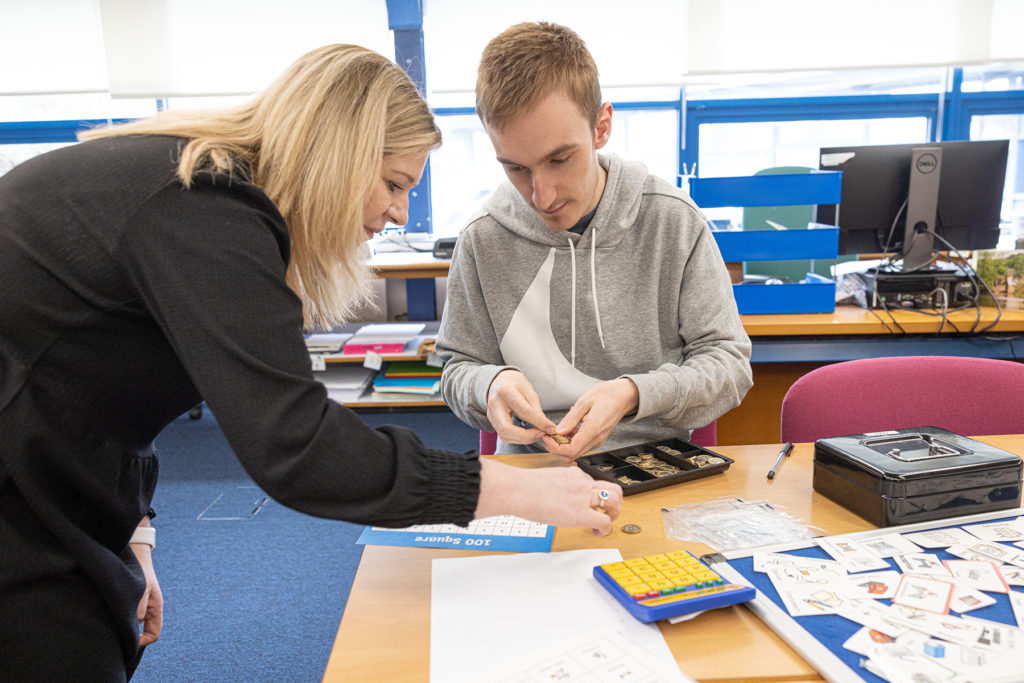Supporting people with complex disabilities to stay in work

Everyone should feel valued in the workplace. We should all be treated with dignity and be given the support we need to excel at our work.
I doubt anyone would disagree with that. And while it’s true that employment isn’t right for every disabled person, many people with complex disabilities find that work enriches their lives.
“Had I not had my job, I would not have got through 2020. It was my lifeline even though I was at home for most of it.”
Person with complex disabilities who took part in our Potential and Possibility research in 2021
Too many people miss out on the right support
But our new research finds that work isn’t a positive experience for every employee with complex disabilities. Some people say they don’t get the right support, while some even report outright hostility from their employers or colleagues.
Our polling of disabled people found that:
- Almost half (44%) of people with complex disabilities in employment said that they’d been harassed or bullied at work.
- Almost 1 in 6 (15%) people with complex disabilities in work didn’t feel their disability was well understood by their employer.
- Over half (52%) of people with complex disabilities in work said they’d taken a less challenging role because of their needs as a disabled person not being met.
What the Government needs to do
But as our findings show, supporting people into work is only part of the solution. Employers need to do more to make sure that disabled people get the support they need to stay in the workplace and to progress in their careers. The Government, too, has a key role to play in encouraging employers to do the right thing.
Reforming Disability Confident
“They said they were disability friendly, and when it came to it, they were useless.”
Person with complex disabilities who is supported by Sense
The Government’s Disability Confident scheme aims to make workplaces more inclusive of disabled people. But our research suggests that it too often fails to do that.
Disabled people tell us that they feel Disability Confident is a box-ticking exercise. Some even say that they have still experienced bullying and harassment despite their employer being part of the scheme.
Sadly, that’s no surprise – after all, the scheme sets a pretty low bar for entry.
Employers can sign up to the first two levels of Disability Confident using only self-assessment forms. Even the external audit for Level 3 is carried out by another Level 3 organisation, rather than by an independent inspection body.
The Disability Confident scheme needs to be made more accountable. We’re calling for organisations signed up to Disability Confident to be undergo independent auditing based on the real experiences of their disabled employees.
Raising awareness of Access to Work
Many disabled people in work receive vital support through the Department for Work and Pensions’ Access to Work scheme. The scheme provides practical and financial support to help disabled people overcome the barriers to work they face. This can include assistive technology, workplace adaptations, and travel expenses.
Access to Work is a fantastic scheme. But it’s not perfect. People who benefit from it say the process of making claims is slow and bureaucratic, and that it doesn’t work with their assistive technology. This is something the Government needs to address.
What’s more. not enough people have heard about it. Our polling found that 43% of people with complex disabilities weren’t aware of it. The Department for Work and Pensions should be doing more to promote Access to Work to employees and employers.
Mentoring by disabled peers
Support from people who face the same barriers as you can be just as important as equipment like assistive technology. Our research found that a quarter of people with complex disabilities would like opportunities to be mentored by disabled peers.
While charities can provide some of those opportunities, only the Government has the resources to offer mentoring to disabled people all over the country. By doing this, the Department for Work and Pensions could help more disabled people enter and stay in work. We’d like to see a national commitment to peer mentoring for disabled jobseekers.
More needs to be done
It simply isn’t right that almost half of people with complex disabilities in work have been bullied or harassed. It will take action from employers and colleagues to address that fully. But the Government does have a role to play in making sure companies take steps to make workplaces more inclusive. And, at the moment, it’s not doing nearly enough.
Have you read our new research on employment support for disabled people? You can read the report and key findings on the Sense website.


